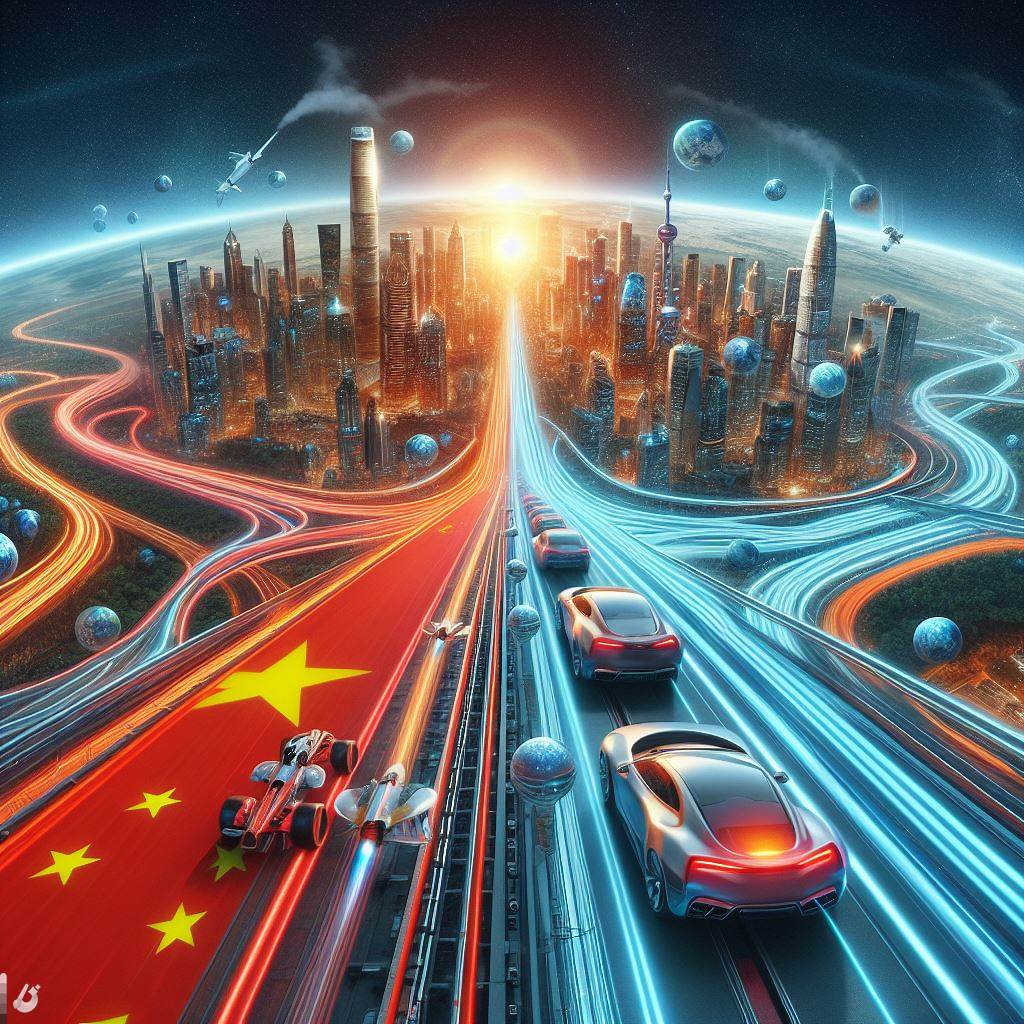
In 2023, the rise of ChatGPT, developed by US-based OpenAI, emerged as a significant event in Chinese social media discussions, capturing attention in a nation striving to lead the global AI race by 2030.
Despite being officially launched in late 2022, it took until 2023 for ChatGPT's unprecedented growth to raise concerns in China, where AI implementations had surged in the past decade, particularly since the Covid-19 outbreak.
Chinese authorities faced challenges in developing their alternative to ChatGPT, with models lagging behind their Western counterparts. The reasons varied, from a focus on fast applications rather than extensive research to the complexity of the Chinese language.
Political sensitivities and a closely monitored online environment in China made the development of ChatGPT-like platforms challenging. Authorities proposed rules for generative AI, mandating alignment with "core values of socialism" and avoiding content that undermines state authority or spreads false information.
Many Chinese tech companies launched their own chatbots, but restrictions imposed by the state made it difficult to compete with ChatGPT, inaccessible in mainland China. The authorities' control over AI content was evident when Baidu's chatbot faced shutdown for asking questions about Chinese leadership.
In 2023, the incident involving iFlytek's AI tablet, which criticized Mao Zedong, led to a drop in the company's shares. It served as a warning to AI players to operate within China's strictly governed cyberspace regulations.
However, this doesn't signify a loss of momentum in China's AI revolution. AI developments have permeated all layers of society, impacting businesses, social media, live streaming apps, and e-commerce platforms. Deepfake influencers, AI-powered customer service avatars, and virtual livestreamers are reshaping the digital landscape.
While ChatGPT's success is undeniable, it's time to shift focus from the perceived "AI race" between the West and China. China prioritizes a balance between economic growth and political stability, with a focus on cyber sovereignty and national harmony. In contrast, the West emphasizes individualism, personal autonomy, and globalisation, leading to different approaches in AI applications.
The unique paths of the eagle and the dragon, symbolizing the West and China respectively, highlight the need to move beyond competitive thinking and geopolitical implications. Instead, there's an opportunity to learn from each other's approaches and find a balance between individual rights and broader societal interests.